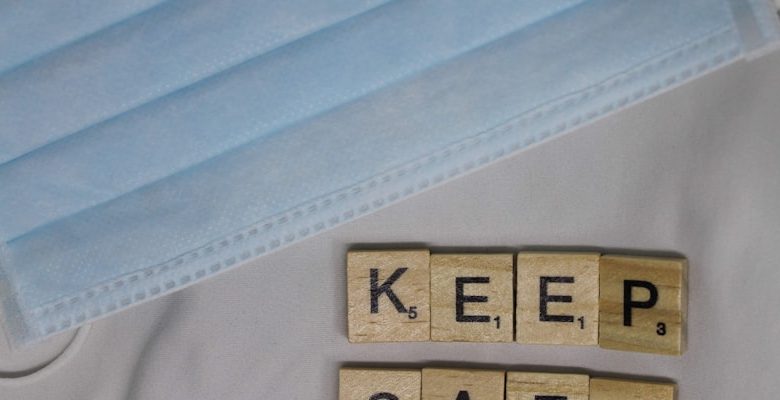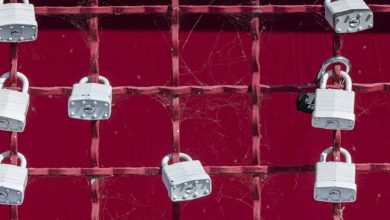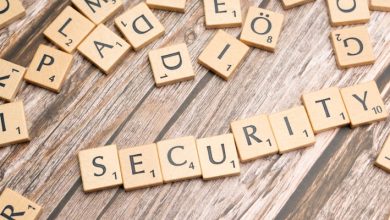How to Secure Your Crypto Wallet: Essential Tips for Safety

- Understanding the importance of securing your crypto wallet
- Choosing the right type of crypto wallet for maximum security
- Implementing strong password protection and encryption
- Utilizing two-factor authentication for an added layer of security
- Regularly backing up your wallet to prevent data loss
- Staying vigilant against phishing scams and social engineering attacks
Understanding the importance of securing your crypto wallet
Cryptocurrency wallets are essential for storing and managing your digital assets securely. Understanding the importance of securing your crypto wallet is crucial to protect your investments from potential threats. By taking the necessary precautions and implementing best practices, you can minimize the risk of unauthorized access and potential loss of funds.
One of the key reasons why securing your crypto wallet is paramount is to protect your assets from hackers and cybercriminals. With the increasing popularity of cryptocurrencies, hackers are constantly developing new techniques to gain access to wallets and steal funds. By securing your wallet with strong passwords and two-factor authentication, you can significantly reduce the risk of unauthorized access.
Another important aspect of securing your crypto wallet is to ensure that you are using a reputable and secure wallet provider. Choosing a trusted wallet provider with a proven track record of security measures can help safeguard your funds against potential threats. It is also recommended to regularly update your wallet software to patch any vulnerabilities and enhance security.
Additionally, practicing good security habits such as keeping your private keys offline and using hardware wallets can further enhance the security of your crypto assets. By diversifying your storage methods and implementing multiple layers of security, you can create a more robust defense against potential threats.
Overall, understanding the importance of securing your crypto wallet is essential for safeguarding your investments and ensuring peace of mind. By following best practices and staying vigilant against potential threats, you can protect your digital assets and enjoy the benefits of cryptocurrency ownership without compromising security.
Choosing the right type of crypto wallet for maximum security
When it comes to securing your crypto wallet, choosing the right type of wallet is crucial for maximum security. There are several options available, each with its own set of advantages and disadvantages. It’s essential to consider factors such as convenience, accessibility, and most importantly, security when selecting a wallet for your digital assets.
One of the most secure types of wallets is a hardware wallet. These wallets store your private keys offline, making them less vulnerable to hacking or cyber attacks. Hardware wallets come in the form of USB devices and are considered to be one of the safest options for storing your cryptocurrencies.
Another popular option is a paper wallet, which involves printing out your private keys and public addresses on a piece of paper. While paper wallets are secure from online threats, they can be easily damaged, lost, or stolen in the physical world. It’s essential to keep your paper wallet in a safe and secure location to prevent any potential risks.
For those looking for a more convenient option, mobile wallets are a popular choice. These wallets are easy to use and can be accessed from anywhere with an internet connection. However, mobile wallets are more susceptible to hacks and malware attacks, so it’s crucial to take extra precautions to secure your funds.
Lastly, desktop wallets are another option for storing your cryptocurrencies. These wallets are installed on your computer and provide a higher level of security compared to mobile wallets. However, desktop wallets are still vulnerable to malware and hacking attempts, so it’s essential to keep your antivirus software up to date and take necessary precautions to protect your assets.
In conclusion, choosing the right type of crypto wallet is essential for ensuring maximum security for your digital assets. Whether you opt for a hardware wallet, paper wallet, mobile wallet, or desktop wallet, it’s crucial to prioritize security above all else to protect your investments from potential threats.
Implementing strong password protection and encryption
Implementing strong password protection and encryption is crucial when it comes to securing your crypto wallet. By using a combination of uppercase and lowercase letters, numbers, and special characters, you can create a password that is difficult for hackers to crack. Additionally, consider using a passphrase instead of a single word, as this can add an extra layer of security.
Furthermore, enabling two-factor authentication (2FA) can provide an added level of protection for your wallet. This feature requires you to enter a code sent to your mobile device or email address in addition to your password, making it even more challenging for unauthorized users to access your funds.
When it comes to encryption, make sure that your wallet uses strong encryption protocols to safeguard your data. This will help protect your private keys and transaction information from being intercepted by cybercriminals. Additionally, consider using a hardware wallet for an extra layer of security, as these devices store your keys offline, away from potential online threats.
Utilizing two-factor authentication for an added layer of security
Implementing two-factor authentication (2FA) is a crucial step in enhancing the security of your crypto wallet. 2FA adds an extra layer of protection by requiring users to provide two different authentication factors before gaining access to their accounts.
One common form of 2FA involves receiving a unique, one-time code via text message or email that must be entered along with your password. This additional step significantly reduces the risk of unauthorized access to your wallet, even if someone manages to obtain your password.
By enabling 2FA, you can rest assured that your funds are better safeguarded against potential threats like phishing attacks or password breaches. It is a simple yet effective way to bolster the security of your crypto assets and prevent unauthorized individuals from gaining access to your wallet.
Regularly backing up your wallet to prevent data loss
Backing up your wallet regularly is a crucial step in ensuring the safety and security of your crypto assets. By creating a backup of your wallet, you can prevent the risk of data loss in case of theft, hardware failure, or any other unforeseen circumstances.
To back up your wallet, you can utilize the built-in backup feature provided by most wallet providers. This feature allows you to create a copy of your wallet file, which can then be stored securely in multiple locations. It is recommended to store your backups in different physical locations to further reduce the risk of loss.
In addition to regular backups, it is important to ensure that your backup files are encrypted to protect them from unauthorized access. You can use encryption tools to add an extra layer of security to your backup files, making it harder for hackers to gain access to your funds.
By following these simple steps and regularly backing up your wallet, you can minimize the risk of data loss and ensure that your crypto assets are safe and secure. Remember, prevention is always better than cure when it comes to protecting your investments in the digital world.
Staying vigilant against phishing scams and social engineering attacks
When it comes to securing your crypto wallet, staying vigilant against phishing scams and social engineering attacks is crucial. Phishing scams involve fraudulent attempts to obtain sensitive information such as usernames, passwords, and private keys by disguising as a trustworthy entity. These scams often come in the form of emails, messages, or websites that appear legitimate but are designed to trick you into revealing your confidential information.
Social engineering attacks, on the other hand, rely on psychological manipulation to deceive individuals into divulging sensitive information or performing actions that may compromise their security. Attackers may use tactics such as creating a sense of urgency, impersonating someone you trust, or exploiting your emotions to gain access to your crypto wallet.
To protect yourself against these threats, it’s essential to exercise caution and follow best practices for online security. Avoid clicking on suspicious links or downloading attachments from unknown sources. Be wary of unsolicited messages asking for personal information or requesting urgent action. Verify the authenticity of websites before entering any sensitive data, and use two-factor authentication whenever possible to add an extra layer of security to your crypto wallet.



